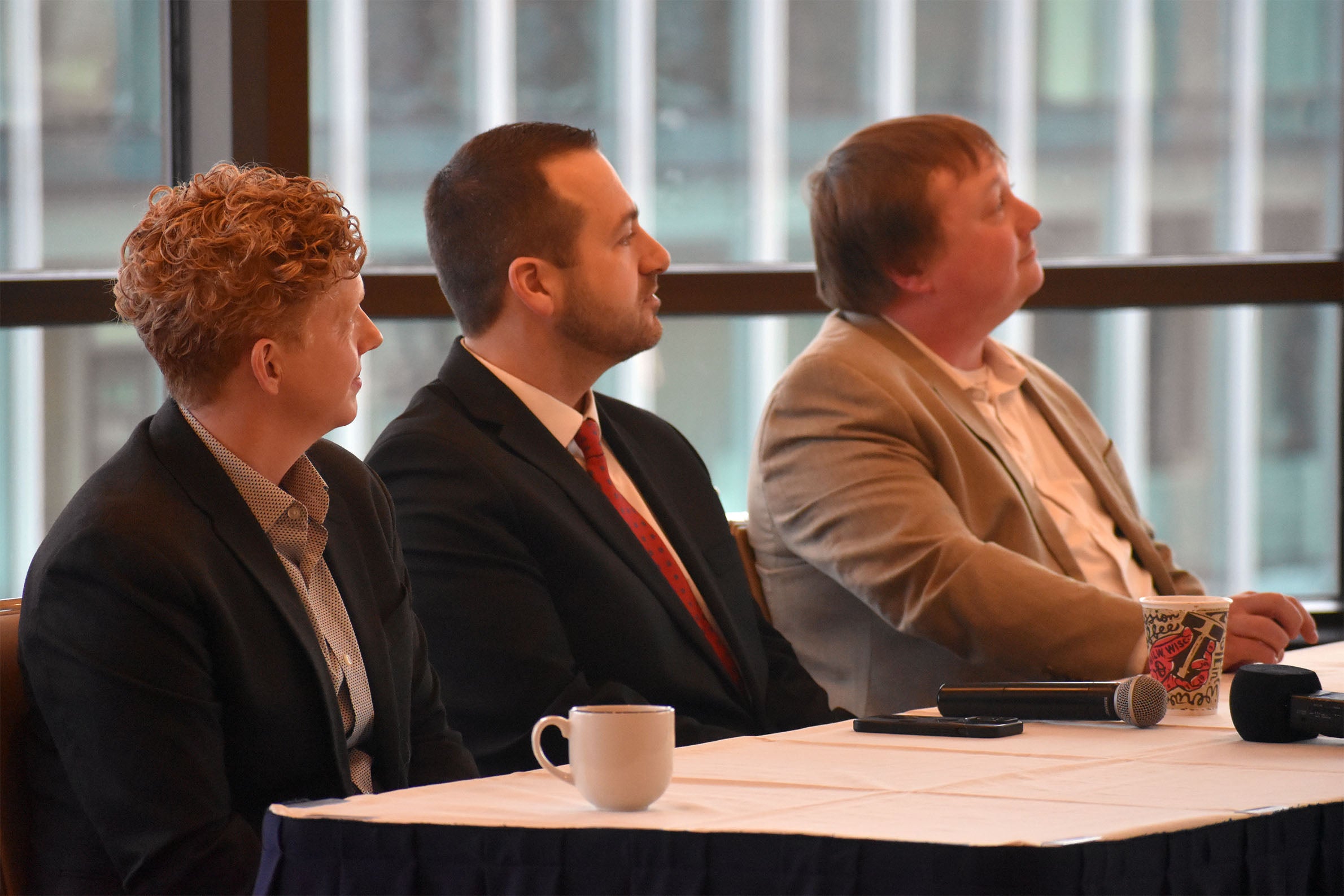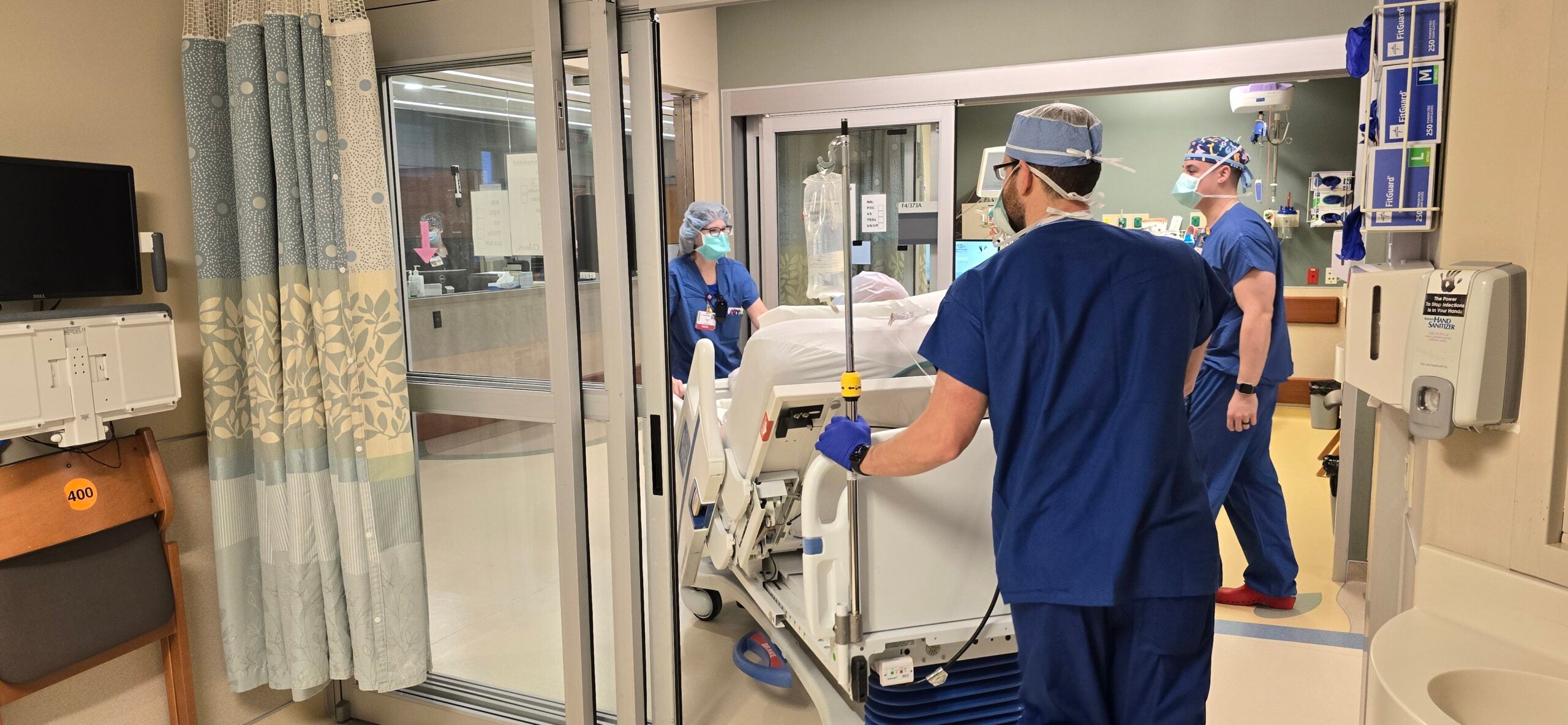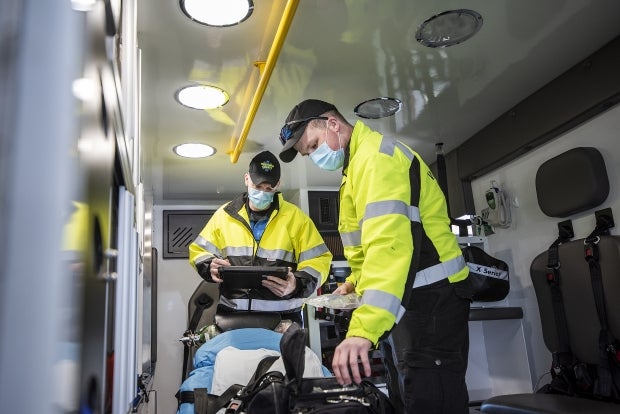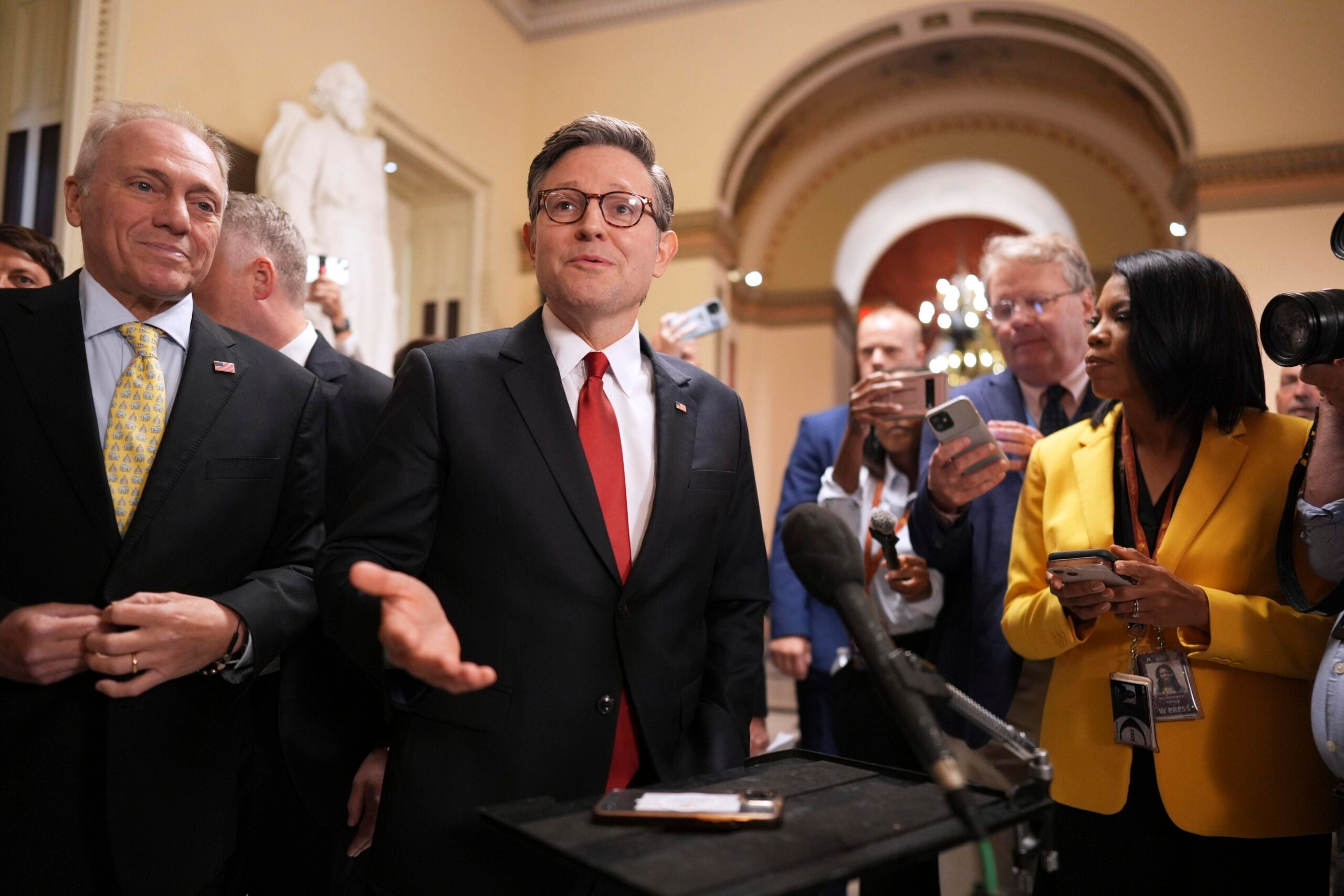Rep. Angela Stroud, D-Ashland, is in her first term representing Wisconsin’s 73rd District in the state Assembly. She was previously a professor at Northland College before leaving voluntarily last year ahead of the school’s closure.
In November’s election, she returned the seat that covers Douglas, Bayfield and Ashland counties to Democratic hands after it had flipped Republican in 2022.
“My colleagues joke that I have the longest commute of any of them,” she said of the 5 ½ hour, 300-mile trek to Madison.
News with a little more humanity
WPR’s “Wisconsin Today” newsletter keeps you connected to the state you love without feeling overwhelmed. No paywall. No agenda. No corporate filter.
Stroud held a town hall in Superior this week, discussing among other issues a dearth of health care services in the district. Before the town hall, she joined WPR’s Robin Washington on “Morning Edition” to talk about those concerns.
This interview has been edited for clarity and brevity.
Robin Washington: During Superior Days in February, area delegates visited you and other state officials in Madison. Many were pleased to see bipartisan participation of northwest Wisconsin legislators — specifically yourself, Rep. Chanz Green from the neighboring 74th district and 25th District state Sen. Romaine Quinn, both Republicans. You all seem to get along. How has that worked so far?
Angela Stroud: We definitely get along. We have a lot of issues in common representing this area. I’ve met Chanz Green a few times, and he’s always been welcoming, and we’ve always discussed issues freely and openly. And my hope is we can see our issues through and get some resolution.
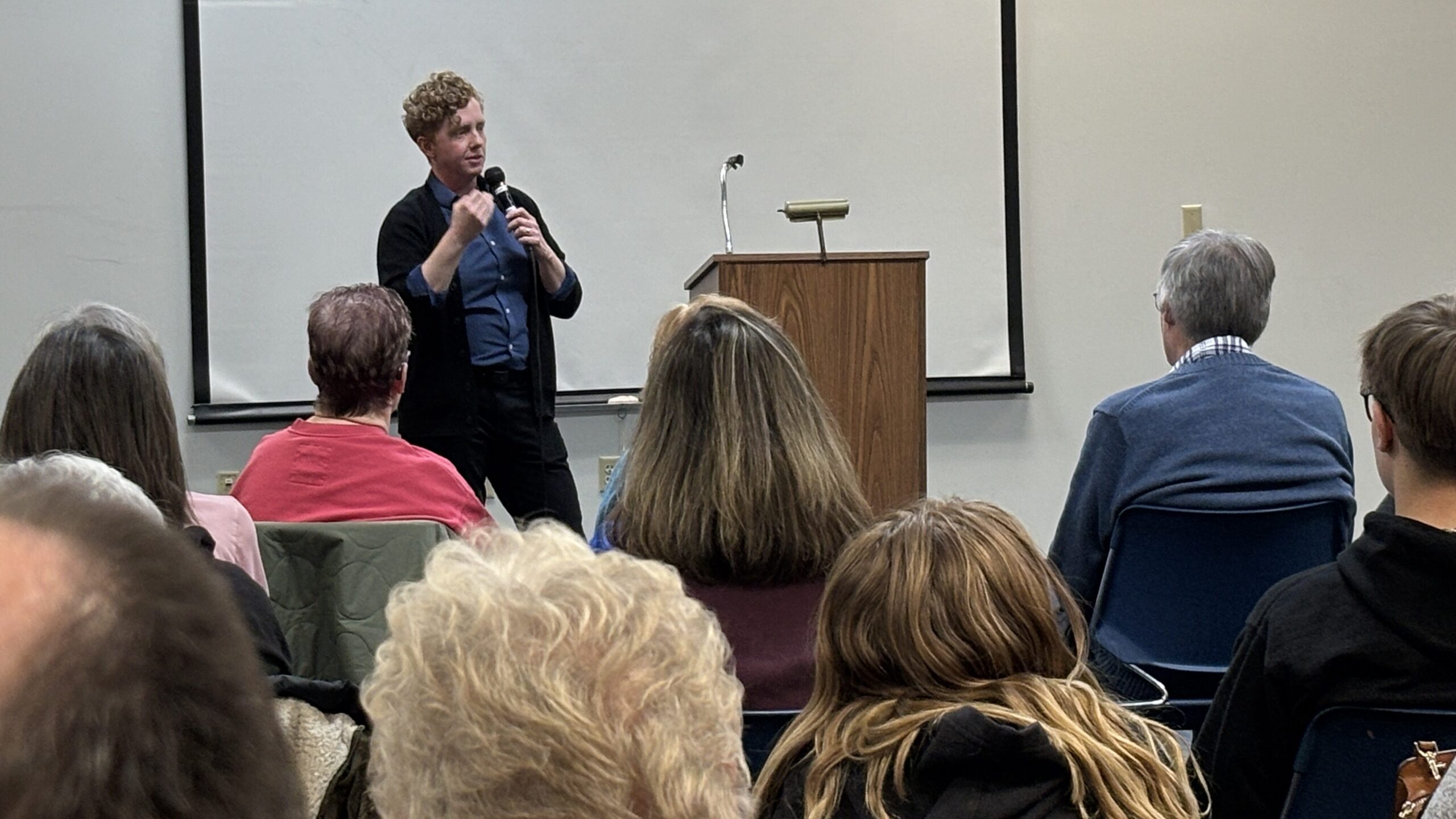
RW: With that, we should stop this interview right here! But one of your top concerns is health care, or specifically the lack of healthcare providers in the region. Essentia and Aspirus are the big hospitals in Duluth. Are their clinics in northwest Wisconsin and other providers enough?
AS: Well, it depends on the field of medicine you’re talking about. There’s a severe shortage in mental health care. We have a shortage of dentists. It comes down to the structural dynamics that either allows health care systems to flourish or constrains them.
In Superior, you can especially see how the state reimbursement rate affects healthcare. Many doctors and other providers just won’t set up in Wisconsin because we are reimbursing them for Medicaid coverage at a much lower rate than other states. So they go to Minnesota instead. Many of them are willing to see Wisconsin patients, but if you’re on Medicaid, you might get bumped down the list.
RW: Is going across the border to Minnesota an option for someone from Ashland, Spooner or even Superior? If they go to Minnesota, will they still get reimbursed for the care?
AS: It depends on the health care coverage they have. Everyone needs to see what’s covered by their health insurance. But generally, you are able to go to Duluth. Yet there’s only so much that Duluth can absorb when the demand is so high with people coming far and wide to seek appointments.
RW: Is there a ripple effect of having to travel for health care services — either economically or health wise, when people simply can’t make the trip?
AS: One of the things that affects all people is access to transportation. Even if you do have the stamina to drive an hour and a half, do you have a car? Do you have the gas? And then do you have the time to do it? That’s a luxury that some people just don’t have.
Our EMS system is also under severe constraints. Again, one of the reasons is the reimbursement rates.
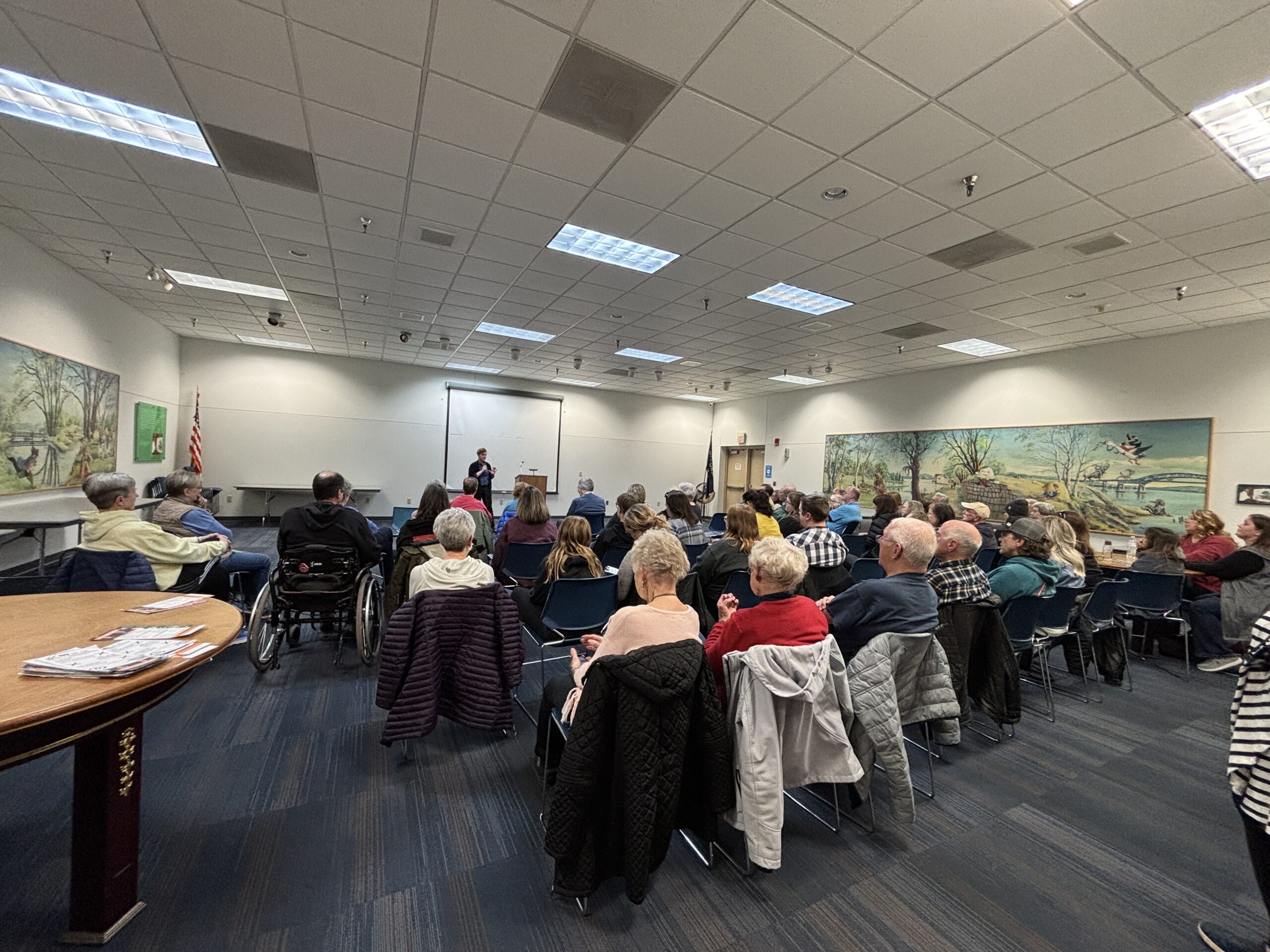
RW: So what can the state do, specifically the Legislature? I mentioned the good feeling of cooperation between you and your local colleagues.
AS: Unfortunately, for the last 15 years or so, Republicans have been completely opposed to taking more money from the federal government to cover more people on Medicaid. Every year, we’ve lost out on billions of dollars, and fewer people have had coverage.
There are still areas where we could be making progress. One is postpartum Medicaid coverage. Wisconsin is one of only two states where if a woman gives birth and she’s on Medicaid, she’s kicked off of it 60 days after giving birth. The vast majority of Republicans and Democrats in Madison agree that policy should be changed. Romaine Quinn is a co-sponsor on that bill in the Senate, but we can’t get it through the Assembly. The one person who’s opposed to it happens to be the Assembly’s Republican leader, and as a result, this bill has not come before the floor for a vote.
If you have an idea about something in northern Wisconsin you think we should talk about on “Morning Edition,” send it to us at northern@wpr.org.

